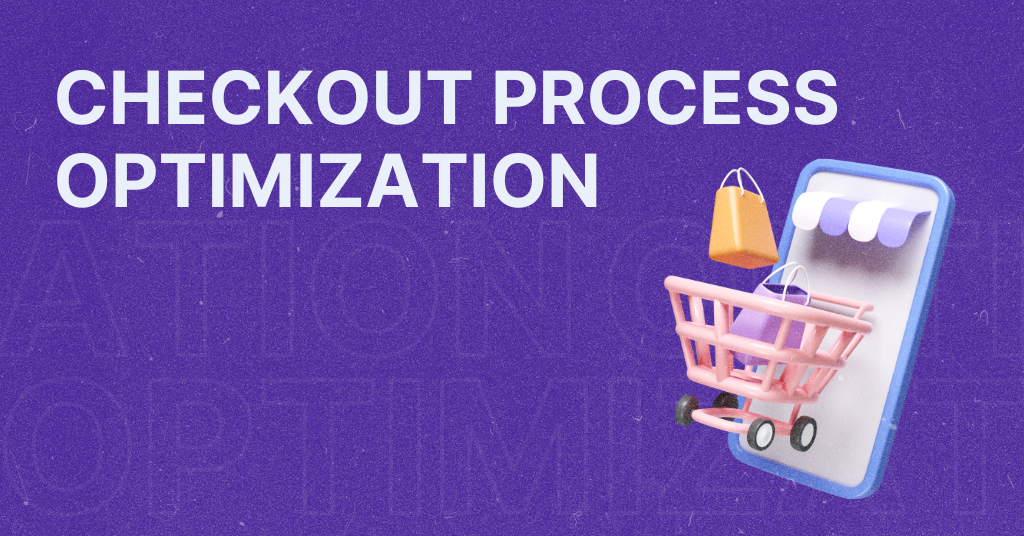
Why is influencer marketing so popular in e-commerce?
Something big has happened in the world of marketing and online shopping! Influencer marketing is viral. At the same time, the e-commerce industry has been booming. These two things have come together to change the way we shop online.
Famous people on social media promote products, significantly impacting online shopping. Influencers have become the new role models, guiding consumers through purchasing. They show us products we might like and make us feel like we can trust the brands they promote.
Why are brands turning to influencer marketing?
Brands have recognized the power of influencer marketing and why it has become a go-to strategy for many. So why are brands increasingly turning to influencer marketing? Two key reasons are building trust and authenticity and expanding reach and engagement.
Influencers build trust and authenticity
Influencers can establish trust and authenticity with their followers. They connect with their audiences on a personal level. Sharing glimpses of their everyday lives builds strong bonds with consumers. They use that time to showcase how products seamlessly fit into their routines. This relatability makes influencers influential in shaping consumer perceptions and preferences. In 2023, it is still one of the best ways to market your products, especially in fashion industry. When an influencer recommends a product, their followers perceive it as a genuine endorsement from someone they trust.
Additionally, influencers possess the power of social proof, which further enhances their credibility. Social proof is the concept that people tend to follow the actions and behaviors of others.
Influencers showcase their experiences with a product or service. After seeing an honest review, their followers are more likely to trust the brand and consider purchasing it themselves.
Expanding reach and engagement to the sky
Brands see influencer marketing as an opportunity to tap into influencers’ audiences. Influencers have a dedicated following of individuals who actively engage with their content. By collaborating with influencers, brands can extend their reach beyond traditional marketing channels. The influencer’s audience becomes a potential target market. A successful collaboration helps in brand exposure and customer acquisition.
Moreover, influencer collaborations enable brands to enhance their visibility in the digital sphere. Influencers introduce the brand to their followers, who may not have been aware of it. This exposure to a new audience can boost brand visibility.
Influencer marketing’s impact on e-commerce
The impact of influencer marketing on e-commerce is undeniable. For e-commerce businesses, influencer marketing is a game-changer. Let’s see why!
Driving website traffic and conversions
Influencer marketing has an impact on driving website traffic and conversions.
Influencers create compelling content that showcases products or services to their followers. They feature products in their posts, videos, or stories.
When followers see influencers using a product, they are more likely to visit the brand’s website to learn more or make a purchase. This traffic can directly contribute to increased conversions and sales.
One more thing. Influencers have a unique ability to influence their followers’ purchasing decisions. When influencers recommend a product or share their positive experiences, it builds trust. As a result, followers who were initially prospects are more likely to convert into loyal customers.
The nature of influencer marketing fosters a sense of connection between the influencer, the brand, and the consumer. Influencer marketing is creating a solid foundation for ongoing customer loyalty.
Boosting online sales and revenue
Influencer marketing has a direct impact on boosting online sales.
Influencers introduce products to a broader audience and encourage followers to make purchases. The trust built by influencers makes their recommendations persuasive, leading to increased sales.
Influencer marketing often involves discount codes and affiliate marketing programs. Influencers may provide discount codes to their followers, incentivizing them to purchase. These discount codes drive sales and create a sense of urgency and reward for consumers.
Affiliate marketing programs allow influencers to earn a commission for each sale they generate. This arrangement motivates influencers to promote the brand.
How influencer marketing influences buying decisions?
Did you ever buy something after seeing it on social media? If you did, that product was probably showcased by a hand of an influencer. That helped make a buying decision, so let’s see why that happens.
The psychology behind influencer endorsements
Influencer marketing has a profound influence on consumer buying decisions. Understanding the psychology behind this phenomenon helps shed light on its effectiveness.
Social proof and the herd mentality
Humans have a natural tendency to follow the actions and behaviors of others. With their large follower base, influencers act as social proof for brands. When influencers endorse a product, their followers see it as a signal that it is worth purchasing.
That’s when the herd mentality kicks in. Consumers feel more compelled to buy the product to align themselves with the group. This psychological phenomenon enhances the brand’s desirability, ultimately influencing buying decisions.
The power of influencer storytelling
Influencers are skilled storytellers who can captivate their audience through authentic narratives. How do influencers connect the product and the consumer’s aspirations or desires? They do it by incorporating a product into their personal stories or experiences. This storytelling approach resonates with consumers on an emotional level. It’s what makes the brand and its products more relatable and appealing. The power of influencer storytelling lies in the ability to evoke emotions and shape consumer perceptions.
Fostering brand loyalty and repeat purchases
Influencer marketing plays a crucial role in brand loyalty and encouraging repeat purchases.
Influencers act as brand advocates
Influencers act as brand advocates, championing the products they love and use. Their consistent endorsement and positive experiences build trust and credibility among their followers. When consumers see an influencer consistently recommending a brand, it seems reliable. Consumers will stick with a brand endorsed by an influencer they trust. That trust leads to repeat purchases and long-term customer relationships.
Creating an emotional connection with consumers
Influencer marketing goes beyond product features and benefits. It creates an emotional connection between the brand and the consumer. Influencers often share personal stories, values, and beliefs that resonate with their audience. By aligning a brand with relatable influencers, consumers develop an emotional attachment. This connection enhances brand loyalty. Consumers feel a sense of belonging and shared values with the brand. These emotions may lead them to support and buy repeatedly.
Key metrics for evaluating influencer marketing campaigns
When brands want to hire an influencer, they go through their profiles and social power. The decision is not easy since there are many influencers out there. There are several key metrics to evaluate how successful the campaign is.
Post engagement and reach
The success of influencer marketing campaigns is measured with critical metrics related to engagement and reach.
Likes, comments, and shares as indicators of campaign effectiveness
The number of likes, comments, and shares on posts gives insights into the level of engagement generated by the campaign. Higher engagement indicates that the content resonates with the audience. Analyzing metrics helps evaluate the campaign’s effectiveness. It’s expected for a campaign to capture attention and create buzz around the brand.
Assessing the impact of influencer-generated content
In addition to engagement, evaluating the performance of influencer-generated content is important. Click-through rates, website traffic, and time spent on the brand’s website are essential. These metrics can help in understanding the impact of content on user behavior. Tracking them helps measure the effectiveness of the content. Effective content generated leads and guided consumers to specific actions.
Analyzing conversions and return on investment (ROI)
So, how to determine if the influencer marketing campaign was profitable? Let’s see what you should pay attention to.
Sales attribution and tracking codes
Brands can implement tracking codes or unique URLs that attribute sales directly to the influencer. These codes help identify the influencer or campaign that led to a purchase. Brands can measure the overall impact of influencer marketing on their bottom line.
Calculating the ROI of influencer partnerships
Calculating the ROI involves comparing the costs of the campaign and the revenue. The expenses include influencer fees, content creation, and promotional charges. Then, compare it to the revenue generated through attributed sales. ROI determines the brand’s influencer partnerships’ profitability and success.
Common pitfalls in influencer marketing and e-commerce
Every prize has two sides. With the rising popularity of influencers, the number of campaigns is also increasing. It’s becoming harder to retain authenticity.
Authenticity vs. sponsored content
Users don’t want to see fake reviews or untrustworthy influencers. It’s important to make natural and transparent influencer marketing campaigns.
A balance between sponsored posts and genuine recommendations
One pitfall is finding the right balance between sponsored posts and genuine recommendations. Sponsored content is a common practice in influencer marketing. But ensuring that the sponsored posts don’t overshadow authentic content is crucial. Trust and authenticity can erode if followers perceive an influencer as promoting products only for money. Fitting sponsored posts naturally into an influencer’s content mix helps maintain authenticity.
Influencer transparency and disclosure guidelines
Another pitfall to avoid is inadequate transparency and disclosure. Influencers should indicate when content is sponsored or contains affiliate links. Failing to comply with disclosure guidelines can lead to legal issues. This can also negatively impact consumer trust. Brands and influencers must work together to ensure transparency and compliance with regulations. Maintaining credibility and fostering trust is essential for both sides.
Choosing the right influencers for your brand
Selecting the right influencers determines the success of influencer marketing campaigns. So, what should you know before hiring one?
Understanding target audience alignment
Choosing influencers based on their follower count or popularity is a bad start. You must consider whether their audience aligns with your target market. It’s essential to research audience demographics, interests, and engagement levels. Selecting influencers connected to your target market enhances the campaign’s relevance.
The importance of long-term partnerships and genuine collaborations
You should avoid treating influencer marketing as a one-off transaction. Think about fostering long-term partnerships and genuine collaborations. Short-term collaborations may not have the same impact.
The future of influencer marketing and e-commerce
The end of influencer marketing is nowhere near. Hiring influencers is still a main task for many e-commerce brands. Let’s see how the future of the influencer scene looks.
Micro-influencers and nano-influencers on the rise
Micro-influencers and nano-influencers have smaller but highly engaged and niche audiences. Brands recognize the value of these influencers. They offer higher authenticity and relatability. Micro-influencers and nano-influencers have a closer relationship with their followers. These influencers allow brands to target specific segments. The likelihood of conversions is increased.
Video content and live streaming as dominant formats
Video content and live streaming emerge will stay as dominant formats. Consumers increasingly prefer video content, which provides a more immersive and engaging experience. Influencers use YouTube, Instagram, and TikTok video formats to connect with their audiences. Brands and influencers should create video content, tutorials, product reviews, and live events. Video and live streaming offer interactive experiences customers easily connect with.
Integration of influencer marketing with emerging technologies (e.g., AR/VR)
Augmented reality (AR) and virtual reality (VR) technologies offer interactive experiences for consumers. It enables them to visualize products before making a purchase. This will allow followers to try products virtually or engage in virtual shopping experiences. This integration helps in bridging the gap between the digital and physical realms.
Conclusion
Influencer marketing has become a powerful force in the world of e-commerce. It’s transforming the way consumers shop online. Brands are turning to influencer marketing to build trust and authenticity and expand their reach. Influencers can establish trust with their followers. They act as social proof and influence buying decisions. They create an emotional connection with consumers through storytelling. Finding a good influencer for your marketing campaign may be challenging. But, the extra work will pay off if the campaign is effective.
Let’s book a 30-min mobile strategy session and give your shop a boost.
Let’s book a 30-min mobile strategy session and give your shop a boost.


